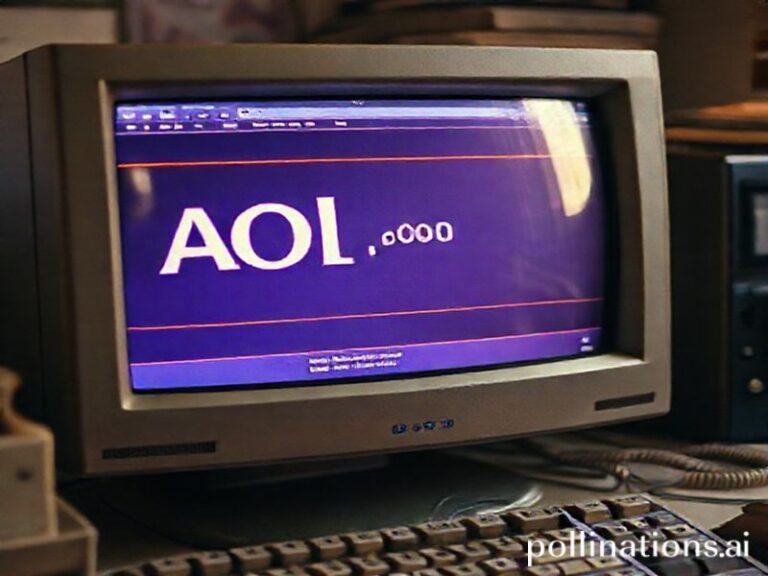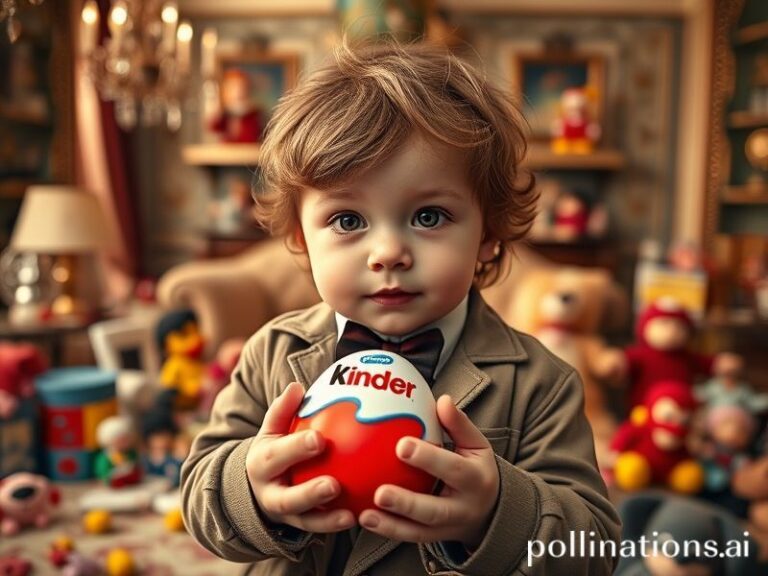From Zoolander to Zaatari: How Ben Stiller Became the UN’s Reluctant Geopolitical Meme
PARIS—Somewhere between the Seine and a Starbucks that still hasn’t figured out how to spell “Ben,” the planet’s most famous panic-attack-on-legs is being recast as a geopolitical bellwether. Yes, Ben Stiller—once merely the human embodiment of an anxiety dream about airport security—has been upgraded by the United Nations to “Goodwill Ambassador for Refugees,” a title that sounds like a rejected plotline from Tropic Thunder. In 2022 he popped up in Lviv, Kyiv, and the Polish border, looking appropriately haunted, the universal semaphore for “your catastrophe now has celebrity seasoning.” The world took note, mostly because the bar for moral clarity has dropped so low that a comedian who once screamed at a squirrel in Central Park now qualifies as diplomatic infrastructure.
Zoom out and the Stiller Effect becomes a neat allegory for soft-power karaoke. Moscow dismissed him as a “Hollywood puppet,” which is rich coming from a regime that treats Wagner mercenaries as off-Broadway understudies. Beijing’s censors clipped his visit from the internet so fast you’d think he’d mentioned Taiwan, while the EU parliament briefly debated whether celebrity advocacy counts as “digital service” under the Digital Services Act—proof that Brussels can turn even empathy into a compliance spreadsheet. Meanwhile, refugees themselves greeted Stiller with the weary politeness reserved for anyone promising visibility without visas.
The true international subplot, however, is generational. Millennials who learned geography from Dodgeball now discover that the same guy who taught them to fear wrenches is teaching them to locate Kharkiv on a map. It’s a curriculum only late-stage capitalism could devise: geopolitics by way of DVD extras. For Gen Z, Stiller has become a meme of earnest concern—frozen in TikTok loops next to Zelenskyy deepfakes—illustrating how solidarity is now measured in screen time. The algorithm doesn’t care whether you donate; it cares that you lingered 0.4 seconds longer on a man who once milked a cat.
And yet, cynicism ages poorly. Stiller keeps returning to the field, armed with nothing more potent than a camera crew and the faint optimism that shame still functions. In Jordan’s Zaatari camp he played soccer with Syrian kids who preferred Ronaldo but humored him anyway; in northern Kenya he squatted beside Somali mothers whose drought-chewed fields looked like Mars with better headscarves. Each stop produced the requisite Instagram grid—sunset, refugee child, solemn nod—yet the cumulative effect chipped away at the fourth wall separating donor fatigue from actual faces. If the UN’s usual briefings are Ambien in paper form, Stiller’s presence is an espresso shot of uncomfortable proximity.
Which brings us to the darker punchline: celebrity is now a humanitarian supply chain. NGOs budget for “influencer risk” the way airlines budget for jet fuel. When Stiller coughs, donation dashboards spike; when he stays home, Rohingya camps drop off the trending page faster than you can say “algorithmic indifference.” The moral marketplace has learned that empathy without virality is just bookkeeping. Somewhere in Davos, a consultant is probably pitching a SaaS platform called “Stiller-as-a-Service,” promising to scale compassion on a subscription model.
Still, credit where it’s due: unlike certain royals who helicopter into disaster zones with bespoke khaki, Stiller at least reads the brief. He knows the difference between IDPs and refugees, can pronounce “Darfur” without autocorrect, and—crucially—has skin in the game as a second-generation refugee himself. His father, Jerry Stiller, fled Poland in 1939; the family’s original surname was still floating somewhere in Ellis Island purgatory while the world was busy carving up borders. That historical echo gives his advocacy an odd sincerity, like a cosmic joke whose setup took eighty years to land.
In the end, the international significance of Ben Stiller isn’t that he solves crises; it’s that he reminds us how easily we forget them. Every time he appears, slightly rumpled, in another war-scarred landscape, he’s a living pop-up ad for our own attention deficit. The gag, if you like your humor pitch-black, is that we need a man famous for screaming “Do it!” to whisper “Remember.” And for now, the world—distracted, bankrupt, scrolling—leans in just long enough to hear him.







